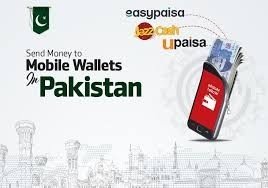Pakistan is entering a defining phase in its social protection journey as it transitions millions of families from cash-based welfare to mobile wallets, marking a historic step toward digital financial inclusion. According to Arif Chaudhry, Vice President of Public Sector Partnerships at JazzCash, this initiative under the Benazir Income Support Programme (BISP) will shift over 10 million families from physical cash disbursals to secure digital wallets — a move that embeds welfare within Pakistan’s digital governance framework.
From Assistance to Empowerment
The transformation represents a shift from passive welfare to active empowerment. With digital wallets now surpassing traditional bank accounts, beneficiaries will receive stipends directly into their accounts, allowing them to withdraw cash, pay bills, or make purchases independently. Each transaction creates a digital financial identity, paving the way for access to credit, insurance, and savings — especially for women.
Prime Minister Shehbaz Sharif has called this transition a national imperative, positioning digital wallets as tools that protect public funds, eliminate leakages, and build transparency. Beyond convenience, digitalization turns social protection into an investment in economic participation, helping expand the tax base and strengthen Pakistan’s formal economy.
Economic and Social Ripple Effects
When beneficiaries use mobile wallets for everyday transactions, they generate measurable data that informs policy and business planning. This visibility enables the government to identify regional disparities, adapt welfare programs in real-time, and drive financial literacy campaigns where needed. For women, digital wallets can unlock e-commerce opportunities, home-based entrepreneurship, and access to microloans — converting welfare into sustainable economic activity.
Infrastructure and Inclusion Challenges
Despite promising progress, challenges remain. Broadband penetration is just over 60%, and around 40% of adults still lack access to formal financial services. JazzCash and other telecom operators are tackling these gaps by issuing free SIM cards and hosting financial literacy sessions to onboard beneficiaries. In one Hyderabad session alone, 200 women opened mobile wallets using Jazz SIMs, accessing digital payments without visiting a bank or service center.
Building a Unified Digital Ecosystem
The groundwork for this digital transformation was laid through pilot initiatives such as the Prime Minister’s Ramzan Relief Programme, which successfully disbursed aid through mobile platforms. As part of the next phase, families will also receive debit cards for cash access, but the focus remains on mobile wallets as the primary tool for managing funds and building digital identities.
Collaborative workshops between ministries, regulators, and private partners are ensuring policy alignment and stakeholder coordination. As BISP leads the digital transition, provincial welfare departments are expected to follow suit, creating a cohesive national framework for digital inclusion.
A Digital Future Within Reach
To sustain this momentum, policymakers must craft enabling regulations, digital service providers must focus on simplicity and trust, and civil society must bridge digital literacy gaps. Together, these efforts can turn Pakistan’s welfare system into a platform for empowerment — where financial inclusion, transparency, and innovation define the future of social protection.















